
UPDATE: This story got a lot of comment and I’ve updated it in response to some of it. I changed the headline to something more neutral because, as several people pointed out (including in the comments), believe it or not, $9 million doesn’t go far for a web start-up. Zestworld has a beautiful, highly functional (and still functioning) website, and as a whole new tech platform, undoubtedly the costs of building that were very high. The money wasn’t wasted…it just got spent.
Also, as I’ve tried to point out, this was an honest attempt to build something…followed by an honest admission that it didn’t work out.
Original story follows:
Comics folks recently got in high dudgeon over Colin Kaepernick’s $4 million AI-based comics company Lumi, feeling that the money could be better spent on building a comics publishing company based on proven creators. But I’m here to tell you about another comics company that had a $9 million investment from some of the same people behind Lumi…and didn’t get very far with it. I speak of Zestworld.
Zestworld launched with high fanfare in late 2021 with a New York Times article.
Zestworld will allow comic book writers and artists to present new work and reap the benefits — and help monetize their creations if they are made into collectibles or adapted for TV, movies or other media. The creators will be stockholders in the company.
“In setting out to build this, we started with the problem statement that this industry is broken for creators; and it’s broken in publishing and TV and film; it’s also broken in events and collectibles,” Chris Giliberti, the founder and chief executive officer of Zestworld, said during a recent telephone interview. “We wanted to build something that’s useful across all areas of their business — anywhere they generate income.”
Zestworld arrived along the lines of the then-hot Substack comics initiative. The idea was to pay top notch creators to make comics which would be distributed in a newsletter format, while also setting up a website comics platform and allowing creators access to various revenue streams, including commissions. There was a whiff of NFT about it, but nothing so onerous that people boycotted. As I wrote when the platform went live in 2022, Zestworld promised to
“fracture the Marvel and DC duopoly by providing top-tier comic creators a centralized platform that combines business, community management, digital publishing, NFTs, metaverse events and IP rights management. Zestworld’s platform provides a fully stacked product tailored to the idiosyncrasies of the comics format and industry.”
Pulling apart the techworld talk, Zestworld is operating on a subscription model, somewhat along the lines of the Substack adventure. A free sub gets you “creator talk” with a $7 a month and $249 a year membership levels getting you the comics and even more goodies, respectively. Zestworld says it’s a more flexible schedule that allows creators to put out work on their own schedule without fear of “shadowbanning.”
So far so good! Also good, $9.37 million raised in the Series A round of investment, led by General Catalyst. Among the investors quoted liberally in early PR, Alexis Ohanian, best known as the co-founder of Reddit and Mr. Serena Williams. Ohanian is a lifelong comics reader who has been involved in several comics-adjacent ventures over the years, notably Breadpig, a now defunct geek merchandising company that published xkcd for a while.
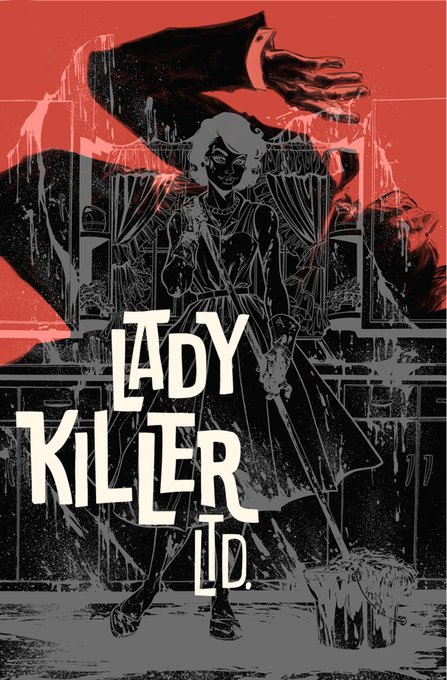
Ohanian was one of the major investors in Zestworld, and is also an investor in Lumi. With a net worth of $150 million, he’s also invested in startups including Instacart, Patreon, Daily Harvest and Clubhouse, so he definitely has some success there. I don’t mean this as a put down – it’s actually kind of cool that he keeps getting behind comics, even if things haven’t quite panned out yet.
The main man behind running Zestworld was Chris Gilberti, formerly the head of Global Head of TV & Film at Spotify. I met up with Gilberti for coffee shortly after Zestworld launched and he was very nice. He definitely had a lot of ideas for helping creators with all the things mentioned above, and seemed very sincere about it. No notes. In our conversation he did say one thing that kind of stuck with me, though. His time at Spotify had coincided with the “podcast boom” when that platform was throwing money at people like Prince Harry and using podcasts as IP fodder for movies and TV shows. Gilberti noted that the idea of podcasts as IP had sort of dwindled away but comics seemed to be a much more fertile field for ideas that could be leveraged. I guess this could be a whole article on its own, but platforms come and go but comics abide.
Zestworld’s launch creators were a distinguished bunch: Eric Canete, Amanda Conner, Phil Jimenez, Joëlle Jones, Jimmy Palmiotti, Alex Segura and Peter Tomasi, among others. Quite a few of the launch titles came out in some form or other, and you can still read them at the Zestworld website.
Of course this was not my first rodeo with a start up comics company, and Zestworld followed the usual path: at first there was a spurt of PR and interviews, and a splash at New York Comic Con 2022. And then things became much quieter. There was a flash of life at C2E2 in 2023, along with some very nice pins:
Excited to debut these pins with @VonGormanArt , @ComicUno and @PhilFalcoWrites via zestworld at @c2e2. They are FREE, stop by our booths for more information! @zestworldcomics 💙👇🏻 pic.twitter.com/LiBEIFkrf6
— Liana Kangas (@lianakangas) March 23, 2023
Zestworld also won our undying love by publishing The Legendary Lynx, the comic book from Alex Segura’s award winning mystery novel, Secret Identity. Set in the 70s comics industry, the Lynx was the lead character of the fictional Triumph Comics, and Segura and artist Sandy Jarrell created a throwback series to get super meta about it all. (The Legendary Lynx is now published by Mad Cave!)
Of course, as time passed, I was very curious about what was going on at Zestworld because…what do you do with $9.37 million dollars?!? It seems like you could do a lot more than make some pins. The Substack experiment had basically dried up – a lot of people left the platform when their contracts were up, although it provided a great launching pad for James Tynion IV and Jonathan Hickman. It seemed that newsletter comics were not the wave of the future after all. (Someone should definitely write a history of the Substack experiment though – if you ask me, I’m glad comics creators made bank.)
I checked in with Gilberti a few times but he said they were figuring things out. Earlier this year I was told by various creators that the platform seemed to be dead, and when I asked Gilberti if they had anything going on he said “No announcements on this end really.”
That seemed to be that. Yet another comics company that launched with some great ideas and fanfare but just dissipated into thin air – the last post on the Zestworld Twitter was in June, 2023.
However, while I was researching this story I did some googling and found an actual announcement of sorts. In October 2023, in a BlueSky post by Ben Guilfoy he casually mentioned that with Zestworld closing he was moving his efforts to Patreon. He even screenshotted an email he’d received:
Dear Zestworld Creators,
We are making some changes to Zestworld, and we want you to be the first to know. On October 27th we will be transitioning zestworld.com to “read-only” mode and removing all publishing and transaction features on the site.
Why? We set out to build digital tools that enable artists to earn income directly from fans. After a little over a year of experimentation, we have not hit on a sustainable monetization model for creators.
We’ve learned a ton along the way — and we’re convinced there’s a bright future ahead for comics, just not the one we imagined. So it’s time for us to gracefully bow out and venture down a new path.
Fortunately, the way we structured Zestworld should make this transition pretty seamless. You get to take your contacts and IP with you. And for your convenience, we’ll make this transition gradual.
Here are the most important things you need to know:
-
- On October 9th we will be turning off the ability for Fans to request new digital commissions. Fans who have already purchased Digital Commissions will still be able to access their previously paid for commissions on the site.
- Creators will still be able to email their subscribers, export their contacts, and publish free-to-read comics until October 27th. After this date, the publishing features will be turned off site-wide.
- Fans with monthly paid subscriptions will no longer be charged after October 27th. Fans with annual subscriptions have been refunded for their second year payments. An email to all fans who are paying for subscriptions will be sent shortly.
We know many of you have questions so we have put together an FAQ document linked HERE that has additional details on how these changes will affect you.
The screenshot doesn’t include the FAQ link, so I guess that’s all we’ll ever know.
A couple of things jump out at me here. One is that no one leaked this to me or any other comics site….and that is rare. No one seems to have mentioned it on social media to the extent that anyone noticed, no subscribers were upset….it just ended. Or as that email put it, “We set out to build digital tools that enable artists to earn income directly from fans. After a little over a year of experimentation, we have not hit on a sustainable monetization model for creators.”
And so another one bit the dust.
But in fact, the Zestworld story is actually quite positive as failed comics lines go.
Everyone got paid well.
Everyone kept their rights.
Some folks got to make comics and got paid for it and then they moved on.
The Zestworld website is still up and you can read some comics there (In its effigy state it’s a rather odd mix of comics by mainstream creators and some webtoons like “I set up a harem to save the world.”)
So there were no losers, no victims. Everyone meant well.
Gilberti and the rest of the Zestworld team have actually moved on to a new venture, Avail, an AI-based script coverage company that launched late last year.
For many script readers, executives and assistants, reading and taking notes on a script can be a lengthy process, sometimes taking over two hours to complete. On top of managing other tasks, looking at an inbox flooded with 100-page scripts waiting to be opened can get overwhelming.
“As an executive who’s making decisions about how to allocate your company’s resources on content, there’s just so much content out there that’s coming across your desk,” co-founder and CEO Chris Giliberti said during a TechCrunch interview. “It’s really hard to keep up. What’s unfortunate about that is, if you miss something, it could be a multimillion-dollar mistake.”
Avail has raised $11.8 million in funding. Everyone walked away happy.
I know what you’re all thinking. What would YOU have done with $9.37 million? I can think of a lot of things, but the takeaway here is that trendy tech start-ups can raise a lot of money on buzzwords but it takes long, hard work to launch a comics publishing company. I guarantee that some of the best ones started out with more like $90,000. Or even $9000.


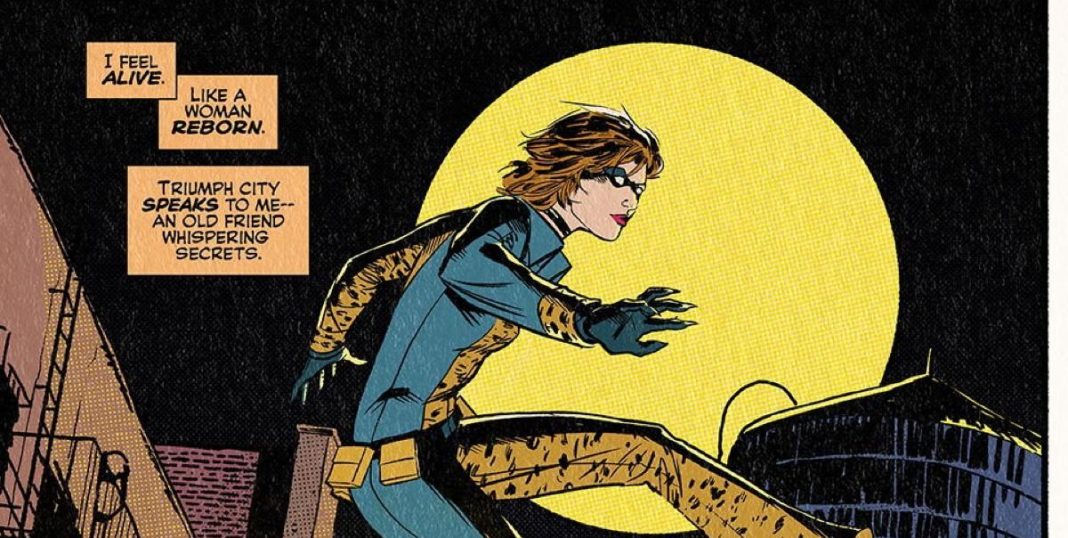
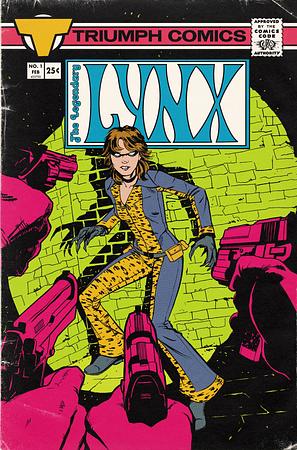
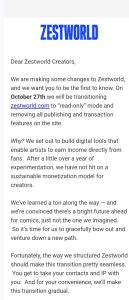


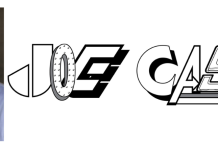







I assume the investors lost money…
The Investors probably did lose money, but professional level investors expect that to happen more often than not. 75% of VC companies never return money to investors. In 30% to 40% of cases investors lose their whole initial investments. Only about 30% of startups survive 10 years of operation. Long-term 9 out of 10 startups fail. https://www.failory.com/blog/startup-failure-rate
Heidi is right. It takes long, hard work to launch a comic book company. The reality is that $9.37 Million dollars would give you a burn rate of about a year for a comic book company paying creators and administration a livable wage and providing health Insurance (“burn rate” is the amount of money that you have to spend to maintain operations until you either figure out a monetization model or you get another funding round). A startup has to quickly create what’s called “product-market fit” during this time in order to monetize their product and scale.
Content production is expensive. You have to have investors with deep pockets who are willing to lose money for 3 to 5 years until the company figures out their business model.
This is if you’re using the Venture Capital (VC) funding model.
You have to have a community of people who love your work and are willing to pay for it for any company to work. You start small and grow gradually. VCs don’t want to hear that. I know. I’ve had the meetings. They want to do what LinkedIn Co-Founder Reid Hoffman calls “Blitzscaling”. https://a.co/d/bZJ2BOs
Go wide, go big, go fast and break things until you figure it out. If you flame out you pivot your business idea and try again. Or you close shop. This is what Zestworld did. If you don’t regularly read startup news outlets like Techcrunch, are haven’t been involved in getting a startup off the ground, the way this went down seems weird. Actually, It is weird LOL, but this is the way they do things in VC startup world.
You’re better off bootstrapping until you have a large enough audience to support you working on your comics full time. So don’t quit your day job. It’s the longer, harder way to go, but way more stable and rewarding, long-term.
Great reporting, Heidi, as always. Kudos!
Sorry, but investors are looking to make a profit. Giving money to a creative comic team does not usually return any financial value. Kap’s investors want him to take their seed money to develop something they can sell for profit. The “content” they produce is usually not worth anything. The automated pipeline process is what they want.
Comments are closed.